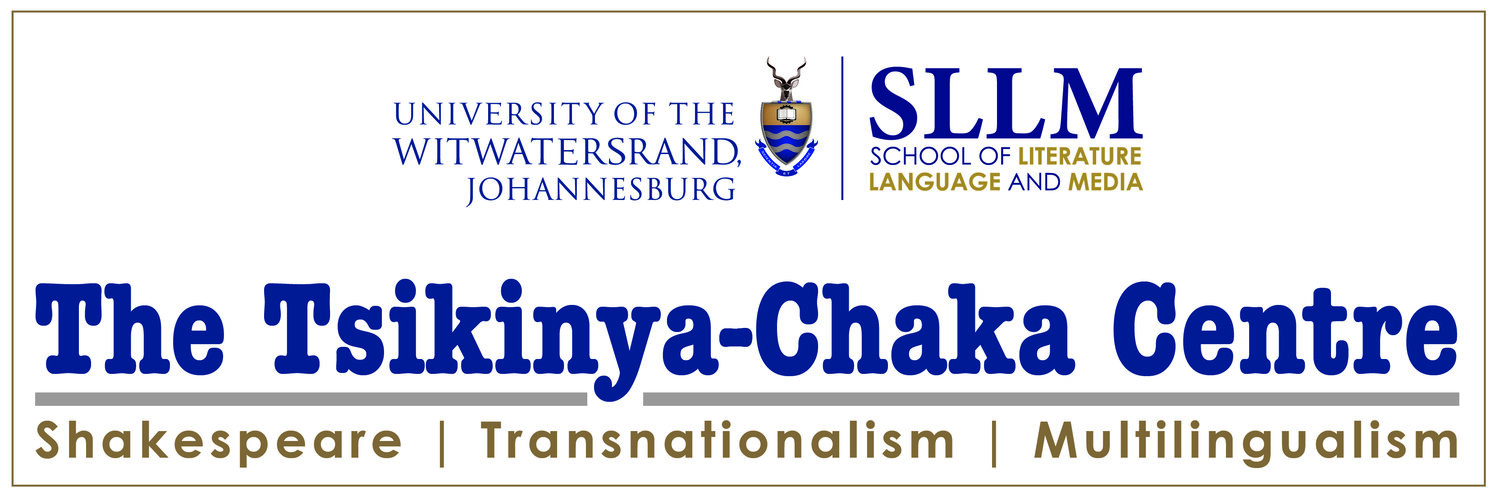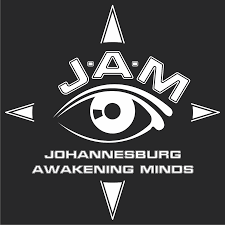JAM at the Windybrow
In June this year, we announced a partnership between How Now Brown Cow Productions, the Johannesburg Awakening Minds (JAM) ensemble and the Tsikinya-Chaka Centre. We promised a series of short videos “demonstrating the transformative power of JAM’s multilingual Shakespeares” ... well, here they are!
In these monologues and scenes, it is evident that the group’s use of the Windybrow Arts Centre in Johannesburg has allowed it to overcome a simplistic “homeless Shakespeare” narrative and - despite Covid-19 lockdowns and the devastating effect that the pandemic has had on the performing arts sector - to produce nuanced, site-specific work that contributes to a South African (and, indeed, a global) conversation about making actors and audiences “at home” in Shakespeare.
To tell the story of JAM, Julie-Anne McDowell (Founder of How Now Brown Cow) and TCC affiliate Daniel Galloway put together a brilliant team. Thanks to Plug In Theatre and Ditchfield Productions, viewers have an opportunity both to get a unique glimpse “behind the scenes” of the JAM AT THE WINDYBROW performances and to learn more about the members of the ensemble.
Interviews with Dorothy Ann Gould, Lwazi Mayeki, Michael Mazibuko, Innocent Mavimbela, Tshiyeya Kalombo Louis, Gift Ntlemeza, Christian Sosibo, Bonga Dlamini, Andile Nhlabathi and Dale Howell offer insight and inspiration! You can watch them via How Now Brown Cow and Plug In Theatre on Facebook, Twitter and Instagram.
Introducing ... JAM AT THE WINDYBROW!
The best place to start is Lwazi Mayeki’s “Wonke umhlaba liqonga”, an isiXhosa rendering of Jaques’ “All the world’s a stage” speech from As You Like It. Filmed in the small open-air auditorium at the back of the Windybrow building, with one of the high-rise apartment buildings of Hillbrow behind the actor as he faces a small mural of “all the men and women” who are “merely players”, this speech (translated by Mayeki) is an appropriately meta-theatrical introduction to this multilingual Shakespearean phenomenon.
Sonneteers and Roman rhetoric
At the front of the Windybrow complex, an old red ramp winds to and from nowhere in particular. Although its former purpose has been forgotten, it is “repurposed” in this video by Michael Mazibuko as he enacts the mood of Sonnet 25, walking up the ramp to deliver his isiZulu translation of the poem. Despite his “lowly” position, the publicly out-of-favour speaker in this sonnet declares that he is exalted by his love. Under the highveld “sun’s eye” - not the gaze of princes - he affirms, “Injabulo ke ikumina othande wathandwa / Futhi ngeke ngisuse ngoba ngeke ngisuswe othandweni.” (“Then happy I, that love and am beloved / Where I may not remove nor be removed.”)
Now for another sonnet - this time it’s Sonnet 116. Innocent Mavimbela gives those familiar (perhaps, in English, overfamiliar) lines, “Let me not to the marriage of true minds / Admit impediments...” new life by translating them into Siswati. The result is “Mangingangeni emshadweni wetingcondo / Teliciniso ngivume kutsintseka” - a dreamy, idealistic, confident, convincing assertion!
***
Then we mount the front steps of the Windybrow’s grand entrance to join Tshiyeya Kalombo Louis as Antony, addressing the crowd of Roman citizens who don’t quite know what to make of the assassination of Caesar. Standing between elaborately carved wooden pillars (bearing classical figures, all togas and beards and bunches of grapes, now strangely appropriate for this monologue from Julius Caesar), Louis delivers the speech in his own French translation.
Again, the site itself adds layers of meaning: the Randlord mansion of the Windybrow, an anomalous presence in “downtown” Johannesburg, is a visible marker of the complexities of belonging and dislocation that have shaped the city’s history - and that continue to inform its relationship to various immigrant communities, including many people from Francophone African countries.
isiZulu Macbeths
Here is Michael Mazibuko again, with his isiZulu translations of two speeches from Macbeth. In the first, as Macbeth prepares to kill King Duncan, the line between supernatural illusion and mental delusion is blurred as he asks the famous question: “Ingabe umese lo engiwubona ngaphambi kwami?” (“Is this a dagger I see before me?”)
In the second, Mazibuko is joined by Gift Ntlemeza for a unique bilingual rendering of Macbeth’s grim vision towards the end of the play: “Kusasa nokusasa nokusasa / Tomorrow and tomorrow and tomorrow...”
Villainous Richards, melancholy Hamlets and more
The multilingual videos highlighted above are only half of the JAM AT THE WINDYBROW repertoire - there are a number of other performances to enjoy!
Lwazi Mayeki returns with two wicked speeches from Richard III. The opening monologue (“Now is the winter of our discontent / Made glorious summer by this sun of York”) was filmed in the foyer of the old Windybrow Theatre, lending an additional theatrical richness to Mayeki’s performance. The second speech is Richard’s callous “Was ever woman in this humour wooed?”, with the mound of earth on which he sits suggestive of a burial ground.
There are also two monologues from Hamlet that turn the Windybrow into a temporary Elsinore. Christian Sosibo delivers “I have of late, but wherefore I know not, lost all my mirth” on an upstairs verandah; Johannesburg, in the background, is either a “goodly frame” or a “sterile promontory” depending on your perspective. On the other side of the Windybrow, Bonga Dlamini descends the staircase at the rear of the building to wish, as Hamlet, that “this too too solid flesh would melt…”
Dlamini shifts rhetorical gear to offer a complement to Louis’ depiction of Antony - in this case, the funeral oration (“Friends, Romans, countrymen...”) from Julius Caesar makes Antony a younger, feistier character. The youth/age dynamic is inverted in Andile Nhlabathi’s emotional depiction of King Lear raging at the storm (“Blow, winds, and crack your cheeks!”).
The TCC’s involvement in this project was made possible by our primary funders and partners, Legacy Underwriting Managers (LUM), the National Institute for the Humanities and Social Sciences (NIHSS) and the Shakespeare Society of Southern Africa (SSOSA).





